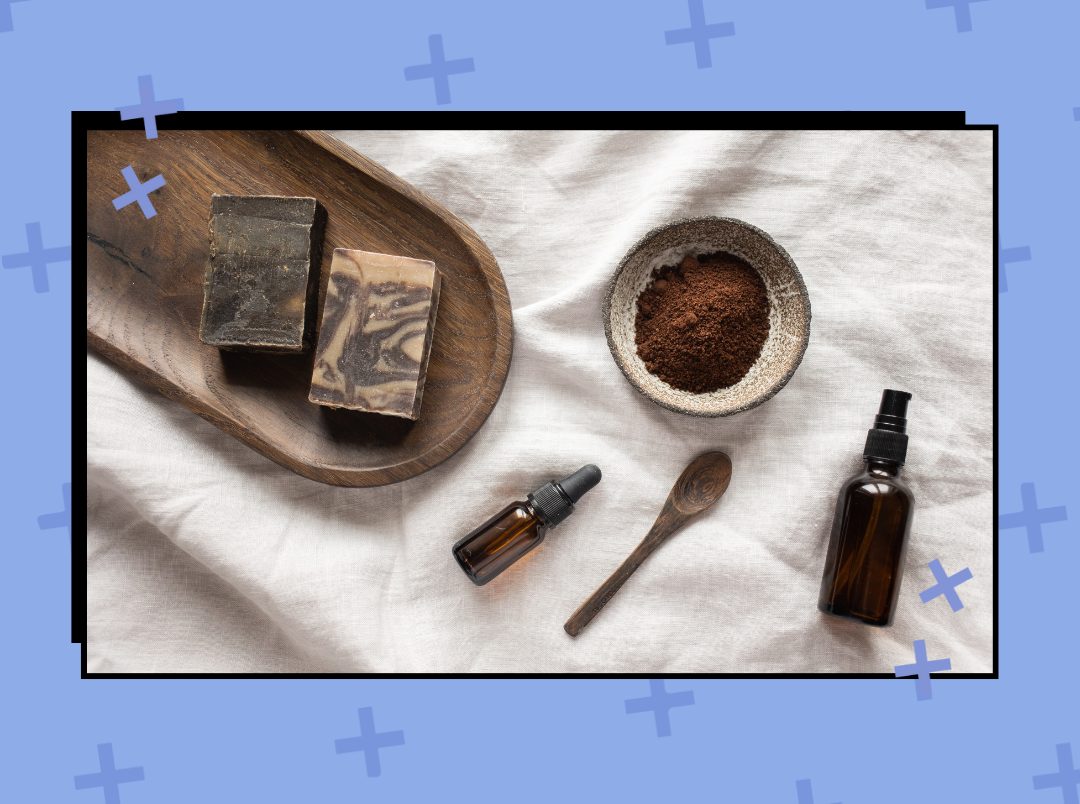
For a while now, we’ve been noticing the internet’s advice to forgo manual/physical exfoliators and commit to chemical-based ones instead. This change in dialogue stems from the belief that this type of exfoliation hurts the skin—and since the skin on your face is thinner and more delicate, it’s only logical to avoid scratching or scrubbing at it for cleansing (which is precisely how manual/physical exfoliation works).
But remember how beads, scrubs, and granules were regarded as one of the most effective ways of cleansing the skin? So, is physical exfoliation really all that bad, or is this some sort of a myth? Let’s find out.
Physical (Ex)-foliation: Must We Forbid It?
What’s The Difference Between Physical And Chemical Exfoliation?
There are two types of exfoliation: physical and chemical. Physical Exfoliation exfoliates the skin manually; while Chemical Exfoliation depends on the chemicals to dissolve dead skin cells and wash them away. The former employs particles like grains, granules and beads as well as textured surfaces like sponges and washcloths into the equation to decongest the pores and dislodge dirt. The latter relies on chemicals like AHAs (like Glycolic Acid and Lactic Acid), BHAs (like Salicylic Acid) and plant-based enzymes to do much of the weightlifting. They, very gently, dissolve the bonds between cells and keep the skin clear of grime and debris, thus making way for newer cells.
Is Chemical Exfoliation Better Than Physical Exfoliation?
It’s never a one-size-fits-all situation with skincare — it depends on your skin-type, needs, and preferences. Multiple studies have testified to the fact that manual or physical alternatives cause microtears on the skin because of how abrasive they are. This isn’t ideal for sensitive or acne-prone skin as it can trigger irritation and inflammation on the skin. A lot of people have switched to chemical-based exfoliators because of how mild they are, and how easily they cleanse the skin. They penetrate the skin more thoroughly and deeply without the need for rubbing.
Experts are of the opinion that some manual/physical exfoliators contain larger and rougher particles with sharp and jagged edges that irritate, inflame, and even infect the skin. This is why they recommend steering clear of the option completely because applying excessive pressure on the skin can also cause damage to your blood vessels underneath.
But Chemical Exfoliation Isn’t Void Of Side-Effects
If you’re using exfoliators with higher concentrations of acids, you might end up hurting your skin. Side-effects can manifest as redness, peeling, inflammation, and irritation. Even layering your skin with other vehicles of AHAs, BHAs, and Retinol (like serums) can worsen the situation. Make sure you’re not doing that and conclude your routine with sunscreen.
If your skin has discolouration, or your skin tone is uneven, you can try out an AHA. Whereas for oil-prone and acne-prone skin, a BHA is ideal owing to its pore-unclogging abilities. If your skin is sensitive, you can try using chemical exfoliators with PHAs instead of AHAs or BHAs. This is a group of acids that is gentler and milder on the skin.
Okay—But What If The Physical Exfoliator Is Safe To Use?
It’s true that a lot of these exfoliators aren’t inherently bad. Sometimes—it’s the manner in which you pick and use them that determines how your skin reacts to them. If you’re using a manual/physical exfoliator, remember this:
- Avoid exfoliators featuring plastic-based beads and balls, and try something ground-up or gentle like jojoba beads, sugar crystals and apricot seeds instead.
- Only exfoliate twice or thrice a week, and rub your skin gently in circular motions for about two minutes.
- Do not press the product into your skin harshly. Use minimal pressure.
- Moisturise after, to rehydrate your skin.
In conclusion, there’s no definite good or bad. It depends on your skin, and how it adapts to a product. If you think physical or manual exfoliation serves you better, there’s no compulsion to switch to chemical-based ones. Just as long as you’ve selected the right product, and know how to use it without hurting yourself – you’re doing good!
Featured: Pexels